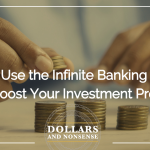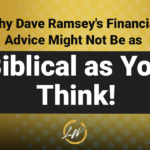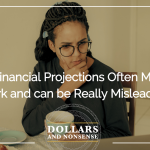Do you ever feel that the financial deck is stacked against you?
For many of us, there’s so much money going out the door every month that it’s hard to get ahead, let alone secure your family’s future.
You may have gotten an inkling of it on that momentous day when you signed your mortgage papers. I remembered the first house I bought. Nervous and excited, I was intimidated by the big stack of paper I needed to read and sign. In that big stack of paper was a disclosure of the total cost of the mortgage.
My realtor jokingly told me not to look too closely at the number. For a good reason; it was shockingly big! Even at today’s low-interest rates, the total cost of $200,000 loan at a 3.95% interest rate over a 30-year period is a whopping $341,667.
Americans are being crushed by debt
The average American pays $280,000 in interest costs over his or her lifetime. It’s not just mortgages that sneakily take money from you; car loans, credit card debt, student and business debt all take their toll.
In fact, dental students typically graduate with an average of $247,277 of student debt. That’s on top of the business debt incurred by setting up a practice. Medical equipment is not cheap!
Most financial advisors advise us to pay down our debt as soon as possible and invest in the stock market. Let’s see how good this advice is…
Paying down your debt can be dangerous
On the face of it, quickly paying down debt seems like pretty good advice. The faster you pay down your debt, the less interest you pay right?
Yes, but this strategy can make you cash poor. Once you pay that money, it’s gone forever. What happens if you have a financial emergency or for several months in a row your business is down? That extra money you paid against your debt is no longer available to you to be used as a cushion, potentially leaving you exposed to financial hardship.
Investing into the stock market doesn’t work for the average investor
As it turns out, the average investor is shockingly bad at investing. Research from Richard Bernstein Advisors shows that for the 20-year period from 1993 to 2013, the average investor had an annualized return over just over 2%. That’s lower than the inflation rate!
It doesn’t take a math genius to realize that if you are only making 2% in the stock market but paying 4% or more in interest on your houses, cars and other debt, you not likely to build much wealth.
Did you know that banks are prohibited from investing in the stock market because it is too dangerous? For the sake of our wealth, maybe we should start thinking like a bank.
The Banking System of the Ultra-Rich

Banks use BOLI (bank-owned life insurance) for their financing needs. The good news is that we can use dividend-paying whole life insurance
Think about it. What if on that $200,000 loan you got to keep that $140,000 in interest? Wouldn’t that be helpful to your balance sheet?
Additionally, thanks to the miracle of compounding interest and a little bit of patience, that $140,000 can turn into a much more significant number. In fact, in one scenario just financing nine $25,000 cars over your lifetime can create $892,253 in wealth!
What’s more, the money is yours to reuse for future needs, cars, houses, business financing, even vacations!
Do I need money to start?

Everyone can take control of their debt and build a wealth legacy for their family. If you would like to stop lining the pockets of the financial institutions and turn your debt into an asset rather than a liability, you should take advantage of the infinite banking system. To find out more, join one of our frequent online presentations that you can watch from the comfort of your home.







